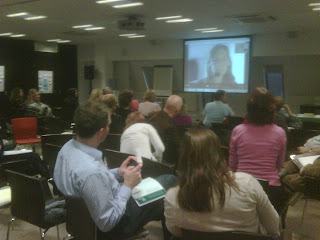- Sucessfully working with JISC as first professional body to receive funding from them to co-ordinate the Embedding IT project . This has now led to a number of professional bodies, including SEDA receiving funding as part of the DIGITAL LITERACIES project.
- Two excellent conferences - one in Chester and one in Aston Business School which broke all records for attendance and twitter chat
- Invitations to contribute to the Govt HE White Paper on enhancing teaching
- Re-design of the SEDA Fellowship Programme and relaunch as the national recognition route for educational developers
- Contributing to the consultation on the UKPSF
- Making stronger links with NUS, UUK, ALDinHE, JORUM, HEDG and QAA
- Running first joint event with HE Academy
- The growth in numbers of universities and colleges wanting to develop SEDA Professional Development Programmes
- Welcoming new members onto SEDA executive
- Appointing Shan Wareing as Fellowships co-ordinator and David Baume as Digital Literacies Project Officer
- Creating a new committee, chaired by Tony Brand to look after membership and entrepeneurial activity
- a SEDA JISC list which continues to buzz at the heart of educational development with discussion, debate and the collective wisdom on which SEDA thrives
Julie Hall
Director of Leanring and Teaching Enhancement
University of Roehampton
London



